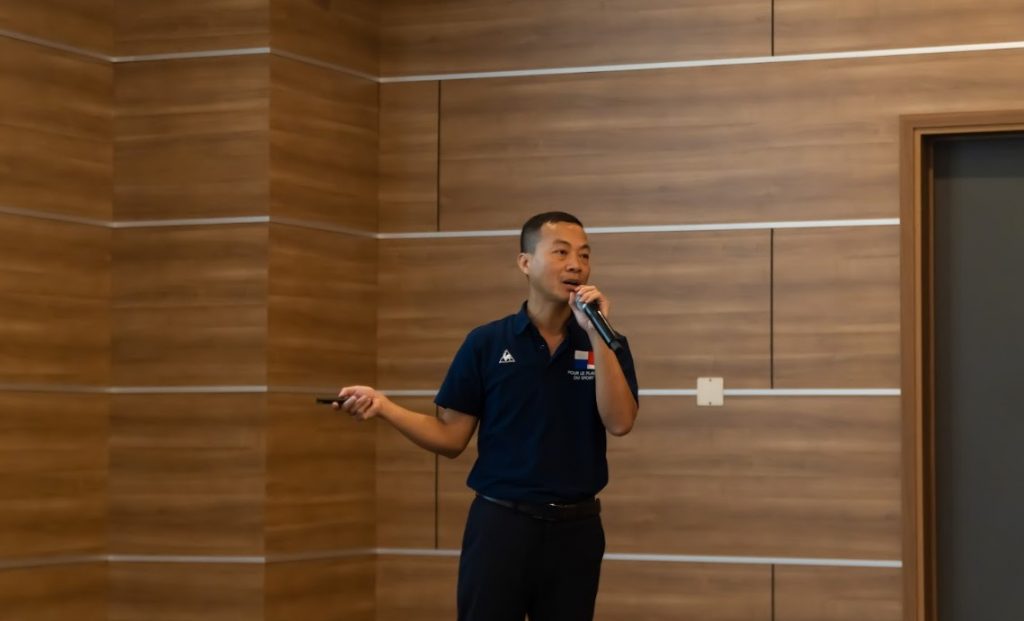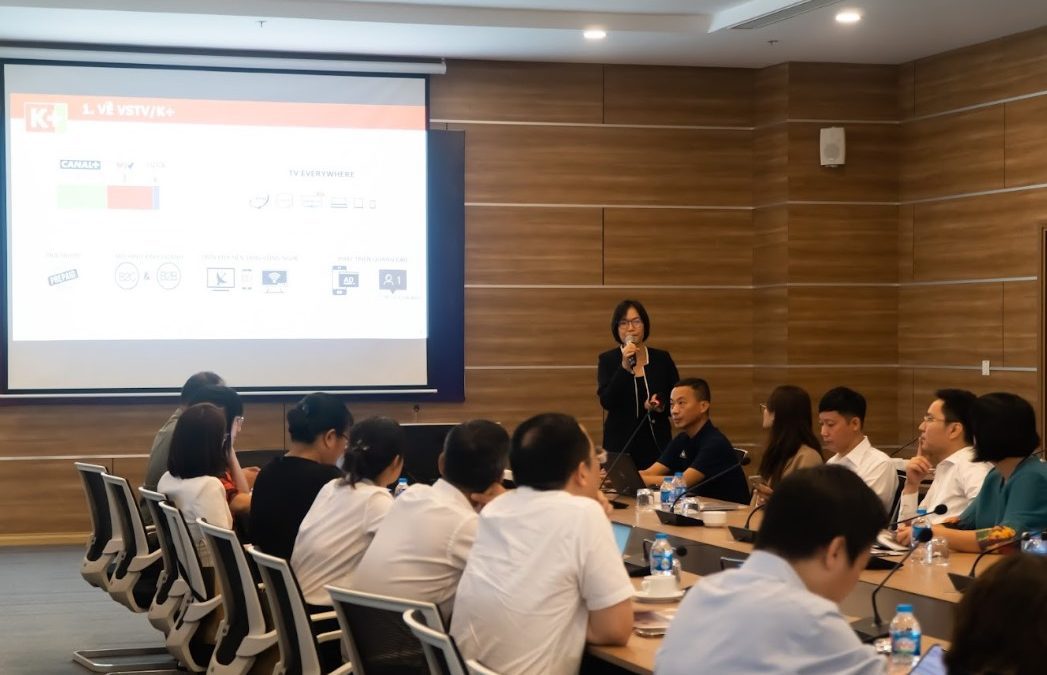The symposium on September 26th regarding “Solving the Copyright Protection Issue for the Music, Film, and Digital Television Industry” organized by Thudo Multimedia has garnered significant attention from various newspapers, including the renowned Văn Hóa Culture newspaper. They reported:
“Copyright violations in digital content are rampant but challenging to prevent. The symposium, addressing a hot and interdisciplinary topic, attracted numerous experts from the film, television, media, technology, legal, and management sectors. They participated and provided valuable insights and proposals aimed at enhancing the effectiveness of copyright protection for Vietnam’s music, film, and digital television industry in the near future.
During the symposium’s opening statement, Vice President and Secretary-General of the Digital Media Association of Vietnam, Vũ Kiêm Văn, remarked, ‘The issue of protecting content copyrights, especially in the current digital transformation context, faces numerous challenges. Over time, many specialized conferences and seminars have been organized, drawing the interest of numerous organizations and individuals related to content creation, business, management, and content distribution.
Most recently, on September 13th, the Digital Media Association of Vietnam, in collaboration with the Vietnam Journalists Association and the People’s Representative Newspaper, organized a workshop on protecting press copyrights in the digital environment. Prior to that, in April, the Digital Media Association of Vietnam, in partnership with VTC Digital Television, organized a forum on digital content creation, digital advertising, and digital copyright protection. Additionally, the Vietnam Digital Content Creative Alliance, in collaboration with domestic and international partners, organized numerous discussions and symposiums on copyright protection for films, books, music, and online games.'”
Speaking about the current state of copyright infringement and the difficulties in preventing it, Phạm Hoàng Hải, representing the Department of Broadcasting and Electronic Information (Ministry of Information and Communications), presented alarming statistics: “Copyright violations are currently very complex, with numerous websites (pirate websites) infringing on copyrights related to football matches, movies, and television shows.
According to SimilarWeb statistics, there are currently around 70 pirate football websites with over 1.5 billion views in 2022 and 2023 combined. Additionally, SimilarWeb’s data indicates that there are over 200 pirate movie websites attracting approximately 120 million views per month, with the top 10 sites receiving more than 66 million views each month.
Recently, some pirate websites have shifted to Japanese manga and anime content. Copyright infringement of anime has drawn strong reactions from Japanese copyright owners concerning copyright violations in Vietnam.”
Expanding on the economic damages caused by copyright protection gaps, Nguyễn Ngọc Hân, the CEO of Thủ Đô Multimedia Company, stated: “80% of violations occur on digital platforms, with content related to television programs, movies, and music being the most frequently infringed. Statistics show that the three global industries of film, music, and television incurred damages of 65 billion USD in 2022, while in Vietnam, the figure was around 348 million USD in 2022, equivalent to approximately 7 trillion Vietnamese dong. Copyright infringement in Vietnam ranks third in Southeast Asia and ninth globally. Without effective copyright protection, the digital content industry in Vietnam will struggle to develop and contribute to the country’s prosperity.”

Many other delegates, including lawyer Phạm Thanh Thủy, in charge of copyright infringement prevention for K+ (a Vietnamese television service), Hoàng Thị Bích Hạnh, representing the Press Department (Ministry of Information and Communications), Phạm Anh Tuấn, representing FPT Play, Hoàng Đình Chung, Deputy Permanent Chairman of the Vietnam Digital Content Creative Alliance, and Nguyễn Thị Thu Hà, Deputy Director of the Film Department (Ministry of Culture, Sports, and Tourism), contributed to the symposium, providing notable information and opinions on the severity of copyright infringement in journalism and entertainment content on the internet and collaborative efforts to combat it.
For example, from August 2022 to August 2023, the Department of Broadcasting and Electronic Information, in collaboration with the Information Security Department (Ministry of Information and Communications) and copyright authorities, worked together to block nearly 1,000 pirate football websites. The Copyright Office, Intellectual Property Office, and the Film Department (Ministry of Culture, Sports, and Tourism) have also increased both the variety and quantity of their efforts from 2023 onwards. With their current functions and newly enacted laws, the Film Department is responsible for monitoring and reviewing copyright violations in the film and entertainment industry. The legal definition of film under the new law has been expanded.”
Proposing new models and actively preventing infringement
Despite various solutions and community efforts to protect copyrights, their effectiveness remains limited in curbing copyright infringement in the fields of film, music, and digital television. During the discussions, delegates, speakers, and guests continued to share their experiences in dealing with this issue. Three groups of solutions were proposed, including two traditional approaches that have been in use for some time: technical solutions and the continuous development of new technologies to encrypt content or track violations, as well as legal measures to support copyright owners, including administrative, civil, and criminal actions.
The third group of solutions is a new trend that has been successfully applied in many advanced countries around the world: blocking access and “Knock and Talk” (locally known as “gõ cửa và nói chuyện,” which involves identifying the financial sources of copyright infringers and issuing warnings/recommendations to customers not to use infringing services, as well as enhancing various forms of communication to raise awareness and consciousness about copyright.”
Regarding technological solutions, it can be said that integrated artificial intelligence (AI) solutions play a significant role in protecting digital content copyrights. At the symposium, representatives from Thủ Đô Multimedia, including Nguyễn Ngọc Hân, shared a new solution developed by their organization: Sigma Multi-DRM integrated with artificial intelligence (AI) for copyright protection (commercially known as Sigma Active Observer – SAO). This solution assists content owners and online content distribution platforms in safeguarding the copyrights of their digital content on the internet.

According to Nguyễn Ngọc Hân, Sigma Multi-DRM consists of three layers of protection that have been validated by Catersian, an international organization specializing in security product assessments. Currently, only one product from a technology company in the Southeast Asian region has received this certification. The tool offers active monitoring solutions, including five key features: multidimensional threat detection, VPN detection and removal, resistance to packet forgery, user behavior analysis, and real-time information. By using Sigma Multi-DRM integrated with SAO, OTT television service providers and online content publishers can protect exclusive content, enhance brand credibility, optimize revenue, and take proactive steps in security.”
In conclusion, Nguyễn Ngọc Hân emphasized, “Regarding the Sigma Multi-DRM solution, Thủ Đô Multimedia is ready to collaborate and support state management agencies and copyright owners in creating an environment that protects digital content. This will expedite the implementation of solutions with financial savings compared to purchasing foreign technologies.”
You can read more about this symposium here: Link to the source


Recent Comments